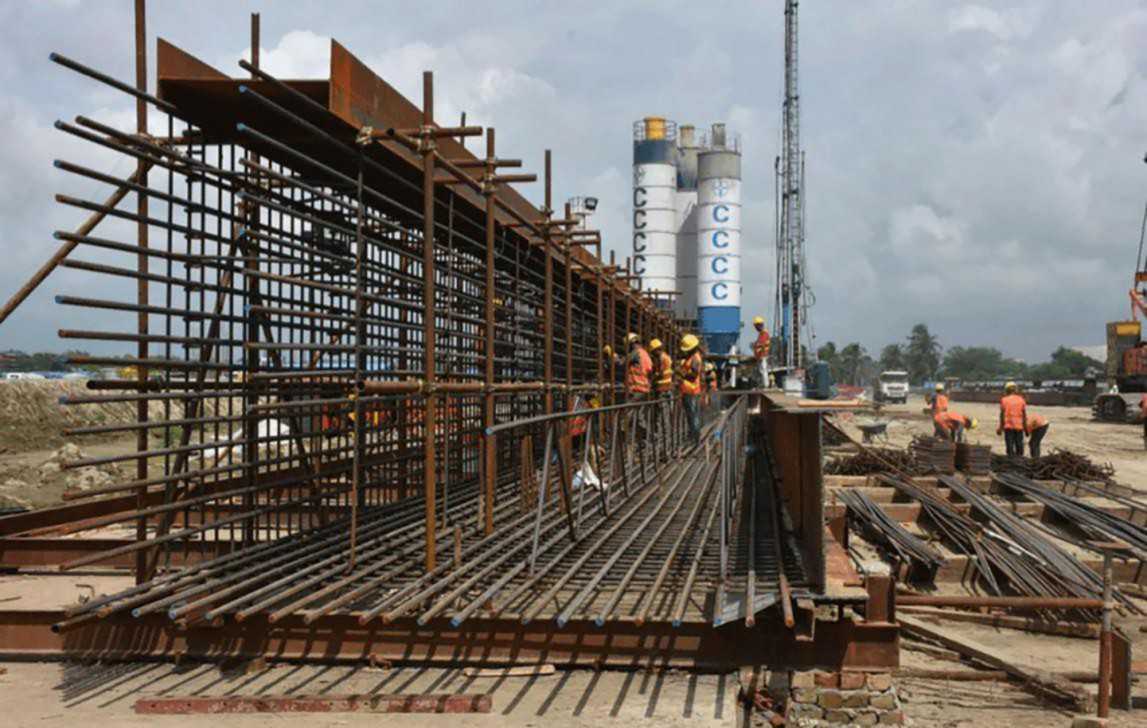Making the most of BRI

Image collected
A daylong dialogue organised by the Centre for Policy Dialogue (CPD) on September 8 brought together participants from Bangladesh and some South Asian countries, as well as from China. Among them were high-level policymakers, political leaders, academics and experts, business leaders, civil society members, and international development partners. The seminar was titled “International Conference on Belt and Road Initiative: Positioning Bangladesh within Comparative Perspectives.” The Belt and Road Initiative (BRI) has drawn both criticism and applause since its inception in 2013. As we stand at the close of 2019, some portions of BRI are beginning to materialise in completed projects. While the western media and some governments continue to portray the BRI as an “imperialist” design by an emerging China, Asian economies, particularly some nations in South Asia (that includes Bangladesh) and many more in South-East Asia, have embraced the opportunity to be part of this plan because of the opportunities it presents—to upgrade outdated infrastructure, open up new trade routes, attract foreign direct investments, among others.
For Bangladesh, its bilateral relationship with China has been growing since President Xi Jinping’s visit in 2016. As pointed out by Dr Fahmida Khatun in her presentation, “Bangladesh is connected with the BRI initiative through the BCIM economic corridor which was formally endorsed during the first inter-governmental study group meeting held in December 2013 in Kunming.” China has undertaken steps to invest billions of dollars in Bangladesh which follow government-to-government and business-to-business models. We have reciprocated with an offer for dedicated Special Economic Zones (SEZs) that will be exclusively for Chinese companies.
Over the last decade, China has become the biggest import partner for Bangladesh. Indeed, China overtook India in 2018 as the country’s largest trading partner with a share of 18.94 percent of total trade, which is almost double the trade with India and more than the trade with the USA and Germany combined. As pointed out by Professor Mustafizur Rahman in an article titled “Realising the Potential Benefits Originating from the BRI”, published in the special issue of Rising Asia Magazine in October 2018, “The support of China, through trade, investment and implementation of development projects, is benefitting the economy and people of Bangladesh through access to goods at competitive price, employment creation, enhancement of economic efficiency and income generation. A further deepening of economic relationship with China will bring benefits to Bangladesh by realising the potential gains originating from the initiatives under the BRI.” If we look at foreign direct investment (FDI), the country witnessed a record high net FDI in financial year 2019 with the inflow of USD 3,232.89 million which came primarily from Chinese sources. The trend of growing Chinese FDI is evident in the increasing investments being made every year.
As pointed out by Professor Rehman Sobhan in the seminar, China has huge foreign exchange reserves and sovereign wealth funds which are being deployed in a much-organised way to bring about the restructuring of the global economic order. Those sentiments were reinforced by the industries minister when he stated that “no nation can progress in an isolated way. BRI is a platform of international cooperation for mutual benefits.” That said, Bangladesh has a host of issues that need to be resolved if we want to take advantage of what BRI has to offer.
We have to explore the opportunities of turning some or a portion of those loans into grants, and these possibilities should exist given the fact that Bangladesh is a founding member of the Asian Infrastructure Investment Bank (AIIB) and was the recipient of AIIB’s very first loan in developing our power sector. The country’s policymakers need to closely examine the terms and conditions of the loans it is taking. This means scrutinising the interest rate, repayment period, grace period, etc. Professor Mustafizur Rahman pointed out in an article titled “Bangladesh-China Emerging Partnership” in November 2016 that “Bangladesh’s own preparedness to implement such large-scale investment projects, over a relatively short span of time, is an issue that ought to be given highest priority… institutional capacity building, placement of specialised and skilled cadres capable of implementing these projects on time and in a cost-effective manner—all these will call for urgent attention of policymakers at the highest level. Regular monitoring and reporting will play an important role in this regard. This is crucial to ensure that the projects will deliver the expected outputs and the Bangladesh economy benefits from these investments.”
He had hit the nail on the head because we do have major problems in these areas. A number of projects that are supposedly being implemented on a fast-track basis are years behind schedule. Not all of them are on grants. Increasing cost because of delays is simply one side of the coin. Infrastructure projects, when delayed, lose economic sense because they fail to deliver the goods that could have been delivered had they been completed on time. Though some progress has been made, we are yet to see meaningful change in the way we do business. Plans to reform and restructure remain unexecuted and unless things change, we will not be able to attract the FDI we want. We better do something about it because we need to move into high gear with China and reap the benefits of technologies developed in that country. These include technologies and processes for high-productivity agriculture, exploitation of marine resources and other areas. At the end of the day, the ball is now squarely in our court. The barriers to much-needed investments in infrastructure have been overcome through regional and transnational initiatives like the BRI, but the need to overcome internal resistance to change is something Bangladeshi policymakers will have to initiate now, and not tomorrow.
Source: https://www.thedailystar.net